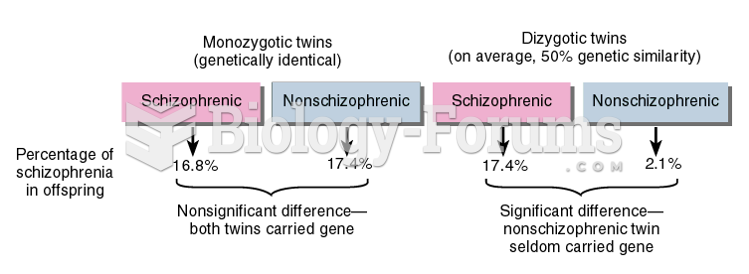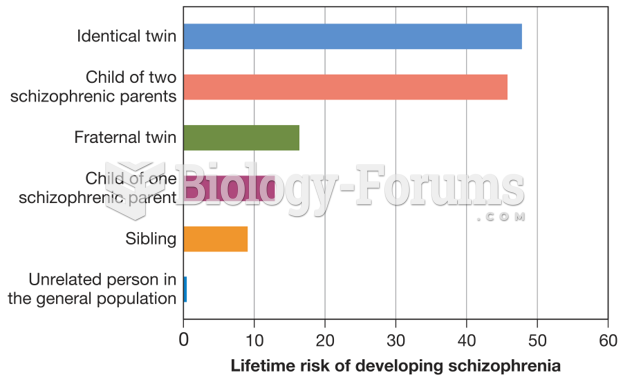Answer to Question 1
Correct Answer: 2
Rationale 1: Chlorpromazine (Thorazine) is incorrect because it is a phenothiazine and does not treat positive and negative symptoms of schizophrenia.
Rationale 2: Clozapine (Clozaril) is an atypical antipsychotic and treats positive and negative symptoms of schizophrenia.
Rationale 3: Haloperidol (Haldol) is incorrect because it is a non-phenothiazine and does not treat positive and negative symptoms of schizophrenia.
Rationale 4: Clonidine (Catapres) is incorrect because it is used to treat ADHD and does not treat positive and negative symptoms of schizophrenia.
Global Rationale: Clozapine (Clozaril) is an atypical antipsychotic, and treats positive and negative symptoms of schizophrenia. Chlorpromazine (Thorazine) is incorrect because it is a phenothiazine, and does not treat positive and negative symptoms of schizophrenia. Haloperidol (Haldol) is incorrect because it is a non-phenothiazine, and does not treat positive and negative symptoms of schizophrenia. Clonidine (Catapres) is incorrect because it is used to treat ADHD, and does not treat positive and negative symptoms of schizophrenia.
Answer to Question 2
Correct Answer: 1, 2
Rationale 1: Chlorpromazine (Thorazine) is a phenothiazine, which is the most effective type of medication to control positive symptoms of schizophrenia.
Rationale 2: Perphenazine (Phenazine) is a phenothiazine, which is the most effective type of medication to control positive symptoms of schizophrenia.
Rationale 3: Clonidine (Catapres) is incorrect because it is used to treat ADHD.
Rationale 4: Citlopram (Celexa) is incorrect because it is a SSRI.
Rationale 5: Bupropion (Wellbutrin) is incorrect because this is used to treat depression and anxiety.
Global Rationale: Chlorpromazine (Thorazine) is a phenothiazine, which is the most effective type of medication to control positive symptoms of schizophrenia. Perphenazine (Phenazine) is a phenothiazine, which is the most effective type of medication to control positive symptoms of schizophrenia. Clonidine (Catapres) is incorrect because it is used to treat ADHD. Citlopram (Celexa) is incorrect because it is a SSRI. Bupropion (Wellbutrin)is incorrect because this is used to treat depression and anxiety.







